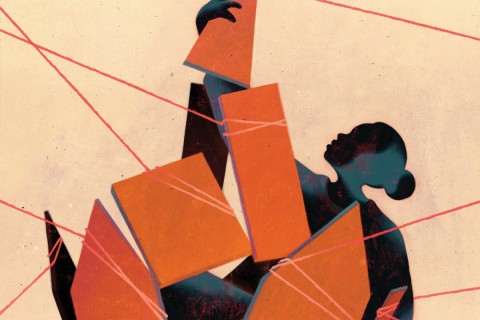Study says backing for Shari'a also has humanitarian basis: Strong support for economic egalitarianism
A recent study by two Indiana academics suggests that Shari‘a law, the Islamic legal code often associated with strict rules, oppression of women and harsh punishments, has a softer side when it comes to the poor.
Analyzing data from national surveys in predominantly Islamic countries, the authors found that people linked the establishment of Shari‘a law with economic reforms such as increasing government responsibility for the poor and reducing income inequality.
The polls were conducted in Algeria, Bangladesh, Egypt, Indonesia, Jordan, Pakistan and Saudi Arabia between 2000 and 2003 by the University of Michigan as part of a “World Values Survey.”
“The orthodox tend to feel that everyone in the community should be subject to what they see as eternal divine laws on the position of women, sexuality and the family. But they also tend to believe that the community and society should look out for its members’ economic well-being,” said coauthor Nancy J. Davis, chair of DePauw University’s Department of Sociology and Anthropology, in a statement.
Davis published the findings with coauthor Robert V. Robinson, chair of the Indiana University Department of Sociology, in a recent issue of the American Sociological Review.
The authors also found that 88 percent of Saudi respondents viewed establishing Islamic law as “important” or “very important,” as did 82 percent of Egyptians, 80 percent of Jordanians, 72 percent of Algerians, 62 percent of Pakistanis, 53 percent of Indonesians and 45 percent of Bangladeshis.
Radical Islamist groups favoring Shari‘a, Davis and Robinson found, have won supporters in Egypt, Indonesia, the Palestinian Territories and other Muslim-majority countries by succeeding where often corrupt and incompetent governments have failed in creating social welfare networks that include clinics, hospitals, day care centers and unemployment agencies.
Alia Hogben, executive director of the Canadian Council of Muslim Women, cautioned that Shari‘a—which she prefers to call Muslim law—is intensely debated in the Muslim world, with some scholars challenging the notion that the laws are divine.
“Muslim laws are based on the Qur’an and Hadith [sayings of the Prophet Muhammad], but they’re interpreted by men,” said Hogben, who helped lead a successful effort last year to prevent Shari‘a and other religious laws from being incorporated into Ontario’s family laws.
Egalitarianism, she added, is important to Muslims less because of Shari‘a and more because charity is one of Islam’s “five pillars.” “If anybody is trying to be a good Muslim, they have to give charity,” she said. “Egalitarianism is an intrinsic part of being Muslim, regardless of Muslim law.” –Omar Sacirbye, Religion News Service




